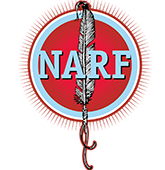The Indian Child Welfare act is a unique piece of legislation that governs the settlement of family law cases for children of Native American descent. Critics allege, however, that its definition of who counts as a Native American, as well as several other aspects of the law, can often work against children’s best interests. The ICWA can end up placing children in danger, sometimes in pursuit of no particular tribal goal at all. Critics counter that the ICWA is a needed corrective after many decades of deliberate erasure of tribal heritage, and that whatever faults the law may have, something like it is still necessary to preserve the integrity of Native American cutures.
Joining us to discuss this controversial law are Timothy Sandefur, Vice President for Litigation at the Goldwater Institute; Professor Matthew L. M. Fletcher of Michigan State University; Professor Kristen Carpenter of the University of Colorado; and Cato Institute Senior Fellow Walter Olson.
Read more at the Cato Unbound website including:
Lead Essay
- Treat Children as Individuals, Not as Resources by Timothy Sandefur, August 1, 2016
Response Essays
- Limit Government Intrusion in Indian Families’ Lives by Matthew L. M. Fletcher, August 5, 2016
- Indian Status Is Not Racial: Understanding ICWA as a Matter of Law and Practice by Kristen Carpenter, August 9, 2016
- This Isn’t the Way to Protect Families’ Rights by Walter Olson, August 10, 2016
